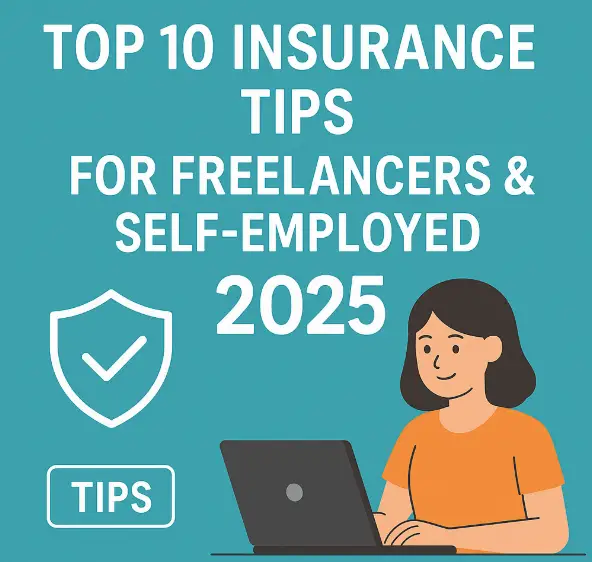Congratulations on being your own boss! Whether you’re a full-time freelancer, contractor, or running a solo business, you’re already doing something amazing — but with freedom comes responsibility. That’s why understanding and managing your insurance needs is key to long-term success.
Here are 10 practical, must-know insurance tips to help protect everything you’re building:
1. 💥 Accept That Things Can Go Wrong
Freelancers often think, “That won’t happen to me.” But accidents, lawsuits, data breaches, or even a client dispute can pop up out of nowhere. Running a business — even a small one — means accepting risks and preparing for them.
2. 🧾 Don’t Just Hope — Get Insured
Worrying doesn’t solve anything. Having the right insurance gives you peace of mind so you can focus on doing what you love. Whether it’s general liability, professional indemnity, or equipment coverage, insurance exists to transfer your financial risk to a provider — and that can be a business lifesaver.
3. 📄 Know That Insurance = A Legal Contract
Insurance isn’t a one-size-fits-all product. Every policy is unique. The same “freelancer liability policy” can have completely different coverage depending on the provider and add-ons. Don’t compare policies by price alone — always look at what’s covered and what’s not.
4. ❗ Pay Attention to Limits & Exclusions
Even if you have the right type of insurance, it might not be enough when you actually file a claim. Policies include coverage limits (how much they’ll pay) and exclusions (things they won’t cover). Always review these carefully — don’t assume you’re fully protected just because you have a policy.
5. 📝 Know What’s Required to Work
Depending on who you work with, you might be required to have certain types or amounts of insurance. This could come from:
-
Clients
-
Government contracts
-
Freelancer platforms
-
Landlords or co-working spaces
-
Banks or business loans
Failing to maintain required coverage could cost you jobs or contracts. Stay on top of what’s required and make sure your coverage is up-to-date.
6. 🧠 Think Beyond What’s Required
Just because insurance isn’t mandatory doesn’t mean it isn’t important. You may not legally need cyber liability or disability insurance — but if something goes wrong, you’ll wish you had it. Think about the risks in your day-to-day work and protect against the biggest ones.
7. 🔍 Shop Around — Smartly
You don’t need to have all the answers up front. Start by getting quotes from multiple insurance providers or talking to brokers who specialize in freelance business coverage. Many offer free consultations and can help you understand what you really need — not just what they’re trying to sell.
8. 👩💼 Work with an Independent Agent (“Indie”)
Over 70% of business insurance is sold through independent agents. A good one can help:
-
Compare rates across top insurers
-
Tailor coverage to your business type
-
Spot coverage gaps before you sign anything
It’s often cheaper and more flexible than going directly through a single provider.
9. 🏔️ Cover Major Risks First
A common mistake? Spending money to protect $2,000 worth of gear while leaving yourself open to a $200,000 lawsuit. Prioritize the big-ticket risks:
-
Professional liability
-
Business interruption
-
Cybersecurity breaches Once those are covered, you can layer on extras like equipment and rental insurance.
10. 🧩 Get a Comprehensive Protection Plan
Your personal and business life are connected. Coverage gaps can sneak up on you:
-
No life insurance with dependents? Big risk.
-
Underinsured auto policy while driving to client meetings? Also a problem.
Aim for a balanced, all-around insurance setup that protects you, your family, and your livelihood.
💬 Final Thought: Protect What You’re Building
You’ve worked hard to grow your business — so don’t let unexpected issues wipe it out. Whether you’re designing websites, offering consulting, or running your own online store, insurance is the safety net your hustle deserves.
Want to explore the best freelance-friendly insurance options? Talk to a trusted independent advisor — they’ll help you save time, avoid mistakes, and find the best value for your budget.



